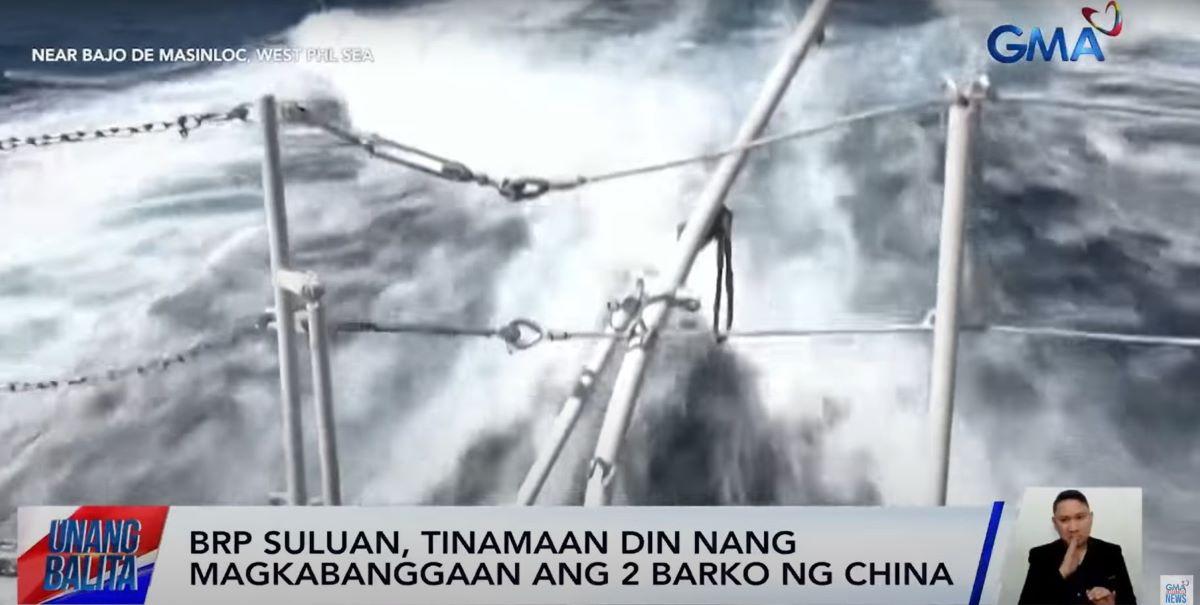China Warship Collides with Philippine Coast Guard Vessel Near Bajo de Masinloc, Raising Tensions

Manila, Philippines – Tensions in the South China Sea escalated on Monday after a Chinese warship reportedly collided with a Philippine Coast Guard (PCG) vessel near Bajo de Masinloc (also known as Panatag Shoal). The incident involved the BRP Suluan (MC-1503) of the PCG and a warship belonging to the People's Liberation Army Navy (PLAN).
According to reports, the collision resulted in damage to the BRP Suluan's flagpole, which was visibly bent after the encounter. The incident occurred while the PCG was conducting routine patrol and resupply missions to Filipino fishermen in the area, a regular practice aimed at ensuring their safety and providing essential support.
The Bajo de Masinloc area has long been a point of contention between the Philippines and China. The Philippines claims sovereignty over the shoal, while China asserts its expansive claims over the South China Sea, including Bajo de Masinloc. This latest incident is likely to further strain already complex diplomatic relations between the two nations.
Philippine Coast Guard Statement
The Philippine Coast Guard has confirmed the incident and is currently investigating the circumstances surrounding the collision. A formal statement released by the PCG detailed the damage to the BRP Suluan and emphasized the importance of adhering to international maritime law and exercising caution in contested waters. They reiterated their commitment to protecting Filipino fishermen and asserting the country's rights in the West Philippine Sea.
China's Response
As of this writing, there has been no official statement from the Chinese government regarding the incident. However, previous encounters in the area have often been met with strong rhetoric and accusations from both sides. Analysts suggest that China's silence could be a strategic move, pending an internal assessment of the situation.
International Implications
This collision highlights the growing risks of miscalculation and escalation in the South China Sea. The United States and other international actors have expressed concerns over China's increasingly assertive behavior in the region. The incident is likely to draw renewed attention to the need for a rules-based order and peaceful resolution of maritime disputes.
The Philippines has consistently sought international support in resolving the South China Sea dispute through legal and diplomatic channels. The country won a landmark arbitration case against China in 2016, which invalidated China's expansive claims. However, China has refused to recognize the ruling.
The incident near Bajo de Masinloc serves as a stark reminder of the ongoing tensions and the potential for further conflict in this strategically important region. Continued dialogue and adherence to international law are crucial to preventing future incidents and maintaining peace and stability in the South China Sea.






